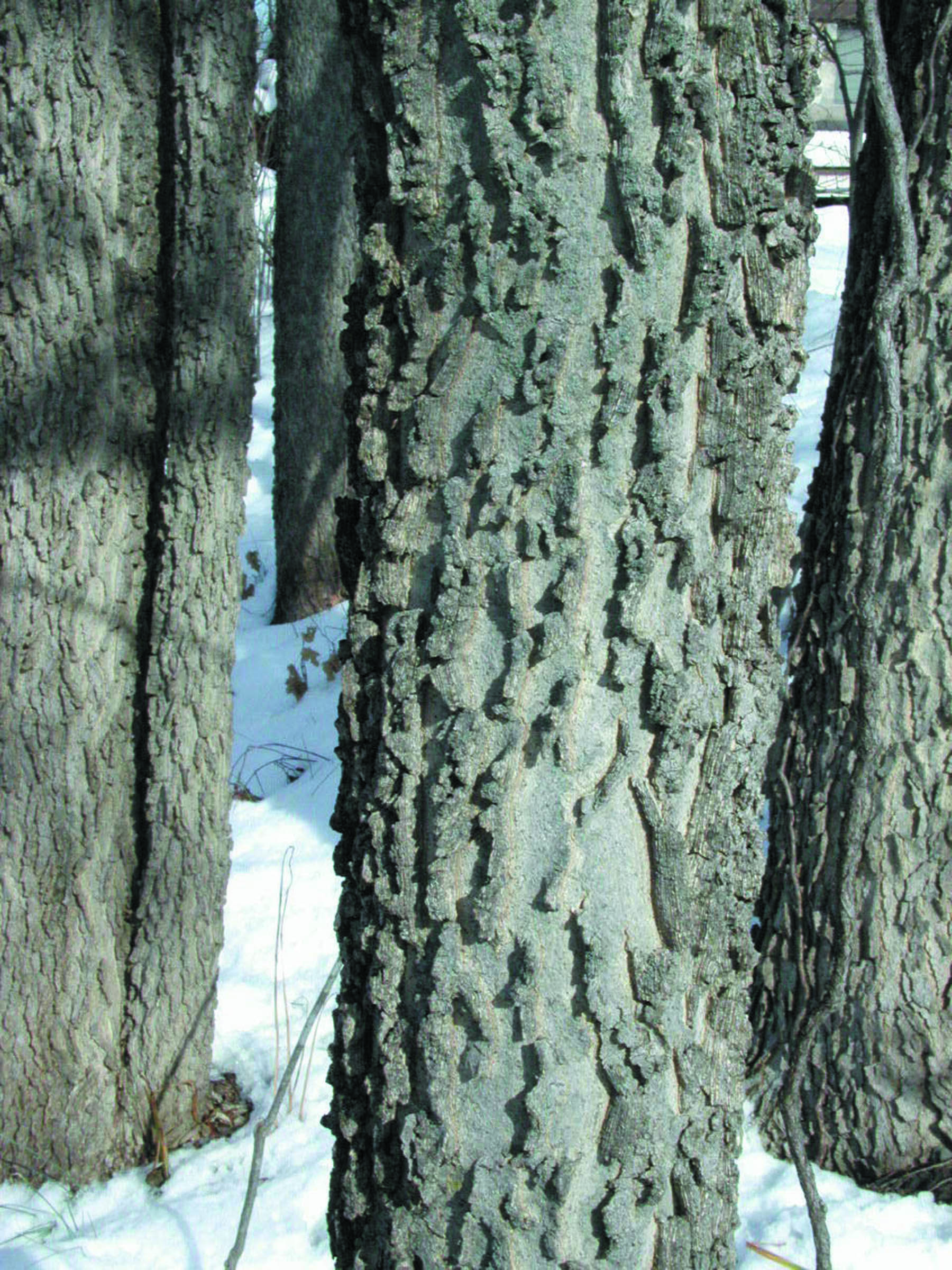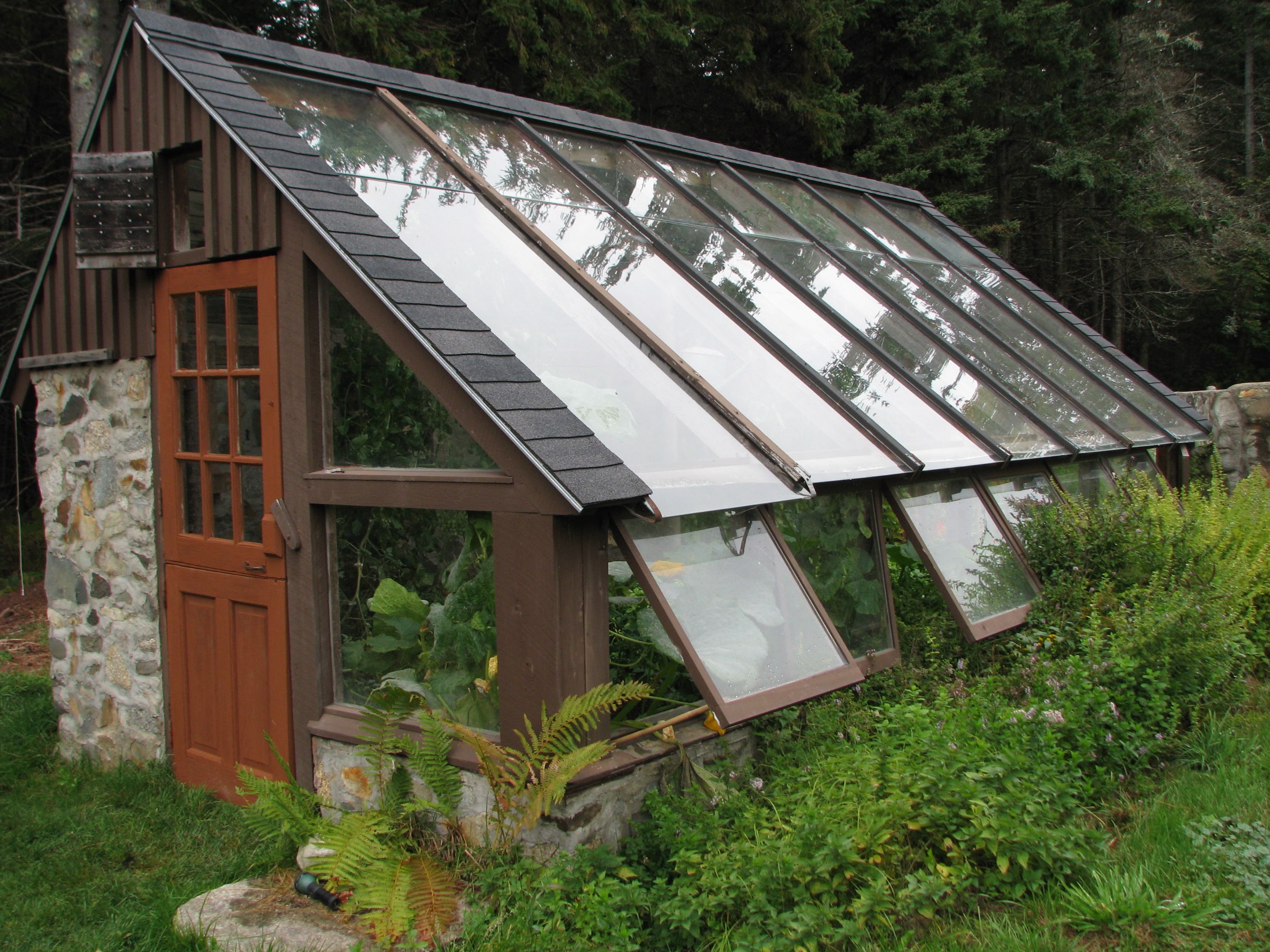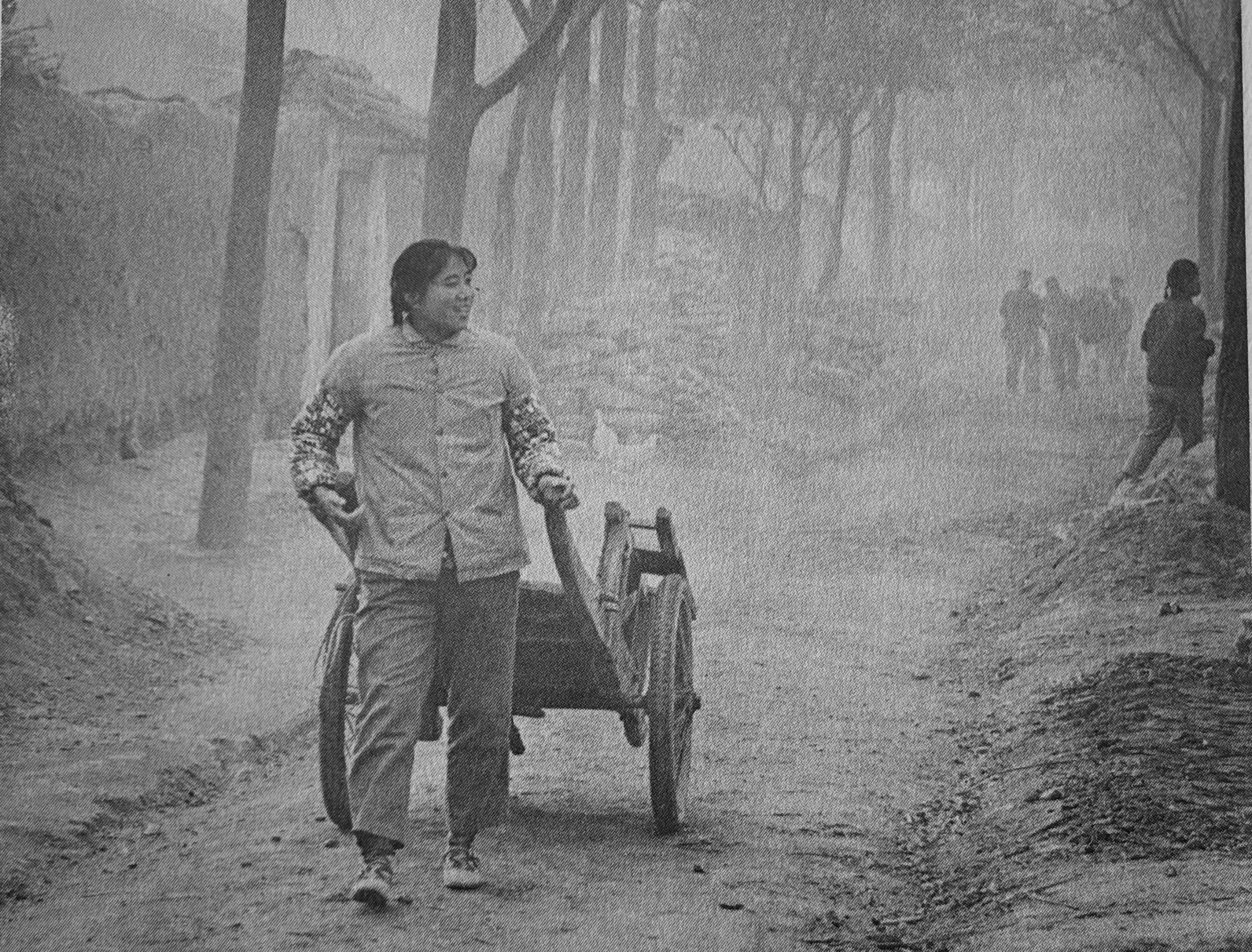WOOF, WOOF, BUT NOT A DOG
/2 Comments/in Design, Gardening/by Lee ReichMore than Meets Your Eye — So Look Closely
The transition from fall to winter brings many trees and shrubs from their most ostentatious to their most subtle beauty. Like a developing photographic image, the textures and colors of various kinds of bark come slowly into view against the increasingly stark winter landscape.
If you were to choose one plant for its bark, what would it be? Paper birch (Betula papyrifera) usually comes to mind, of course. But there are so many other trees and shrubs with notable bark, some as striking as birch, others with a subtle loveliness best appreciated during a winter stroll or viewed through a window from a comfortable chair.
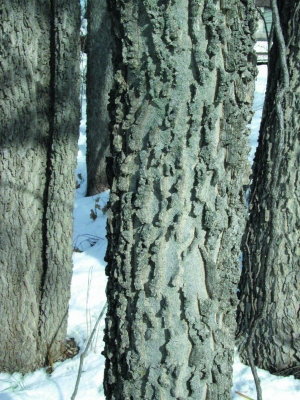
My favorite bark. Can you guess what it is? Read on.
Whole books — Bark, by G. T. and A. E. Prance and Bark: A Field Guide to Trees of the Northeast, by Michael Wojtech — have even been devoted to bark. They are useful adjuncts, in addition to other features such as tree form and remnants of autumn leaves on the plant or ground nearby, to winter plant identification. Read more
SOW A (FIGURATIVE) SEED
/12 Comments/in Planning, Vegetables/by Lee ReichAn Oasis
It’s not the time of year to inspire most of us gardeners to sow a seed, but sow I will, a figurative seed in your imagination. Who knows what reality it may grow into?
As the weather turns increasingly cool, then cold, and the landscape becomes washed over in gray and brown, imagine a retreat, an oasis of lush greenery and bright colored flowers suffused in warm, moist air. A greenhouse.

Greenhouse at the Nearing’s Forest Farm
A CART FOR ALL SEASONS . . . AND GARDENS
/2 Comments/in Tools/by Lee ReichWhat is It?
Praise is in order for an unsung hero of my garden — my garden cart. I’m serious. This cart has played a fundamental role in the pleasures my garden has offered to numerous eyes, noses, and mouths.
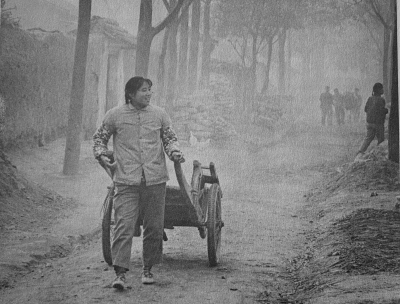
Cart use in China, 1980’s
Let’s first be clear on just what implement I’m talking about. Read more

